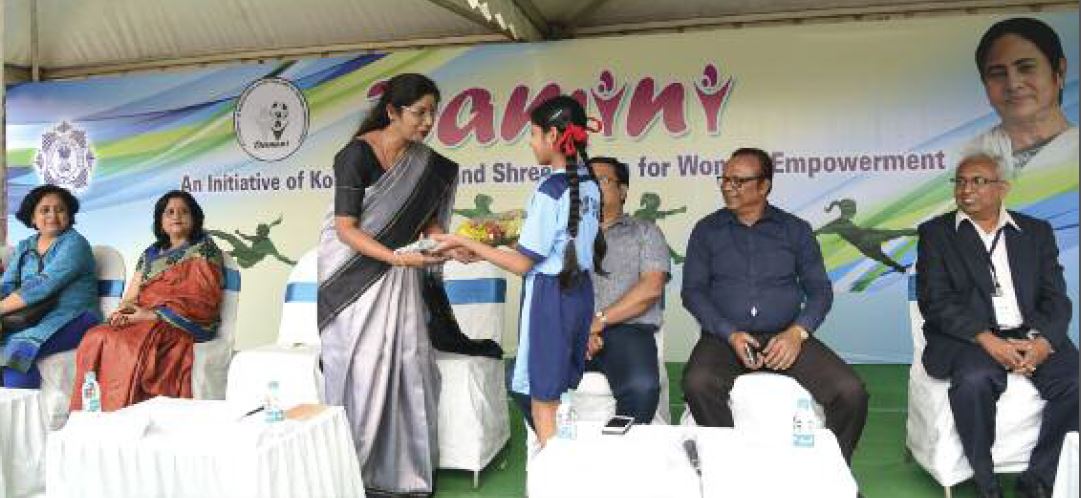 Over the last few decades, we have noticed that empowering school girls in India is often not effective in achieving their intended results. Initially, we believed that computers and mid-day meals for schools would offer better results. But they are not always as desired. Our collectively gloomy conclusions often wonder what would really improve the achievements of these school girls.
Over the last few decades, we have noticed that empowering school girls in India is often not effective in achieving their intended results. Initially, we believed that computers and mid-day meals for schools would offer better results. But they are not always as desired. Our collectively gloomy conclusions often wonder what would really improve the achievements of these school girls.
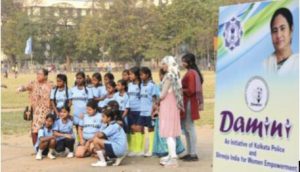 We have to remember that empowering school girls is heavily constrained by factors that are outside of classrooms and schools. In the rush to improve students’ achievements in schools, we often think that our children live protected and nested lives. We tend to improve our teaching methods, our curricula and some times introduce new technologies in schools to improve our students’ achievements. But we often forget that our students and their schools are situated in neighbourhoods filled with families. And individuals living in those school neighbourhoods are highly segregated by social class, race and ethnicity. So any empowerment project that focuses on classrooms and schools only could be reversed and negated by families and surrounding community. In fact, all our good intentions inside schools can be subverted by some external environment.
We have to remember that empowering school girls is heavily constrained by factors that are outside of classrooms and schools. In the rush to improve students’ achievements in schools, we often think that our children live protected and nested lives. We tend to improve our teaching methods, our curricula and some times introduce new technologies in schools to improve our students’ achievements. But we often forget that our students and their schools are situated in neighbourhoods filled with families. And individuals living in those school neighbourhoods are highly segregated by social class, race and ethnicity. So any empowerment project that focuses on classrooms and schools only could be reversed and negated by families and surrounding community. In fact, all our good intentions inside schools can be subverted by some external environment.
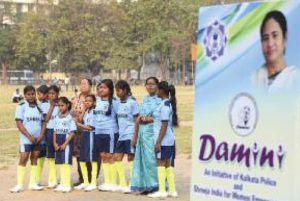 Shreeja India believes that in order to empower young girls we have to move away from the boundaries of school compounds into the shanties and slums surrounding the schools. This does not underestimate the prospects of the Internet, midday meals and other promises of modern development. The out of-school factors associated with poverty play both a powerful and a limiting role in our desired results. We believe that team sports, particularly, football coaching for girls involving families and community might mitigate the temptations of early marriage, girl trafficking and violence against women.
Shreeja India believes that in order to empower young girls we have to move away from the boundaries of school compounds into the shanties and slums surrounding the schools. This does not underestimate the prospects of the Internet, midday meals and other promises of modern development. The out of-school factors associated with poverty play both a powerful and a limiting role in our desired results. We believe that team sports, particularly, football coaching for girls involving families and community might mitigate the temptations of early marriage, girl trafficking and violence against women.
“Football has an appeal and Shreeja India tries to unleash that power in the game to change our surroundings,” said Hari Shankar Dasgupta, country head, Shreeja India, during the inauguration of Damini project at Park Circus Maidan on February 10, 2018.
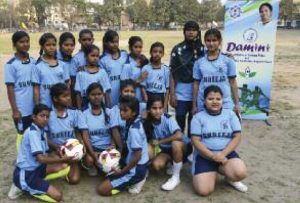 Education doesn’t just takes place in our schools alone. Many Young girls in West Bengal come from poorest of families who have spent no time at all in school-like settings during early parts of their lives. These girls only spend about 30 of their waking hours a week in their schools, and then only for about 2/3rds of the weeks in a year. In the course of a full year, students might spend just over 1000 hours in school, and almost 5 times that amount of time in their neighborhood and with their families.
Education doesn’t just takes place in our schools alone. Many Young girls in West Bengal come from poorest of families who have spent no time at all in school-like settings during early parts of their lives. These girls only spend about 30 of their waking hours a week in their schools, and then only for about 2/3rds of the weeks in a year. In the course of a full year, students might spend just over 1000 hours in school, and almost 5 times that amount of time in their neighborhood and with their families.
“As part of our continued fight against child marriage, human trafficking and domestic violence, Damini Project willtrain 200 plus street girl children at four locations in Kolkata.”
For all these young girls those 5000 hours require additional learning to be a member of one or more cultural groups in that community. They need to learn to behave appropriately in diverse settings, learning ways to get along with others, to fix things, to think, and to explain things to others. These are natural and influential experiences in growing up. But for poor kids what is learned in those settings can often disturb school learning. Shreeja India has learnt the fact that many of the families in those neighborhoods are so poorly equipped to raise healthy children, that the schools those children attend would have a hard time educating them.
One of the main reasons for this situation is that educators and policymakers are continually talking about school reform as if it must take place inside the schools only. As a result, the approach, for the most part, are for adequacy in funding, high quality teachers, greater subject matter preparation, technologically enhanced instruction, and lots of other ideas and methods.
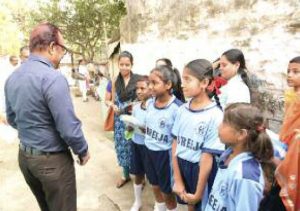 In order to challenge these ideas, Damini Project, jointly organized by Shreeja India and Kolkata Police, builds leadership, teamwork and confidence among street girls in Kolkata. This unique programme not only promises a brighter future for these marginalized girls, but it also creates a positive ripple effect on their communities. To make the journey out of poverty, these young minds have to believe that escaping the cycle of poverty is possible. They have to overcome disillusionment and become empowered citizens with effective life skills–skills that have a real impact on tackling poverty for themselves and for their communities.
In order to challenge these ideas, Damini Project, jointly organized by Shreeja India and Kolkata Police, builds leadership, teamwork and confidence among street girls in Kolkata. This unique programme not only promises a brighter future for these marginalized girls, but it also creates a positive ripple effect on their communities. To make the journey out of poverty, these young minds have to believe that escaping the cycle of poverty is possible. They have to overcome disillusionment and become empowered citizens with effective life skills–skills that have a real impact on tackling poverty for themselves and for their communities.
As part of our continued fight against child marriage, human trafficking and domestic violence, Damini Project will train 200 plus street girl children at four locations in Kolkata. This inspiring association between Kolkata Police and Shreeja India will integrate street children into the mainstream of society. These girls will not only attend school regularly but they will learn a team sport—football at the moment. We expect the project to promote positive impact to stop school drop-outs, delay early marriages, and prevent girl trafficking and domestic violence against women. Along with regular school education and football coaching, the project will also design programs to foster self-esteem, teamwork and leadership.
Shri Sujay Chanda, Joint Commissioner (Establishment) of Kolkata Police said, “Initially, we will send 50 girls each to for training grounds across the city. Along with football, the young girls will also receive training in personality development and confidence-building.”
We have to realize that existing and persistent achievement gaps in young women’s empowering projects must be dealt with in a comprehensive manner. We cannot ignore how social class characteristics in a stratified society like ours may actually influence empowering of girls in schools. We have to target the intersection of social and economic disadvantages with out-of-school empowering projects. That’s how Damini Project has been designed and implemented.
Shib Shankar Dasgupta is the Founder and Executive Director of Shreeja India.















